In November 2014, Airbus chief executive Thomas Enders sent an anxious email message to members of the aerospace and defence group’s executive committee in which he warned that “there’s simply too much shit hitting the fan right now to continue with business as usual”.
The message was prompted by the news that, two years after the opening in Austria of an investigation into alleged fraud and corruption by the group in a 1.7-billion-euro contract for the sale to the country of 18 Eurofighter Typhoon aircraft, German police had again raided the offices close to Munich of the defence arm of Airbus as part of a their own separate probe.
In his email, Enders wrote: “Alleged bribery cases have been intensive as probably never before in our Group […] Recent police raids in some of our sites, press reports, court actions, all have heightened the concerns of our Board about the compliance situation and practices inside our businesses.”
The situation has only worsened for Enders and Airbus since, with investigations also opened in Britain and France since 2016 into claims that hundreds of millions of hidden commissions were paid out in the sale of the group’s civil aircraft. In June this year, “Tom” Enders as he is more familiarly called, addressed his senior management at a meeting at Airbus headquarters in Toulouse, southern France. "If there are still people in this room that believe we should put the shit under the rug,” he told them, “then I would have to say, I give up on these people."
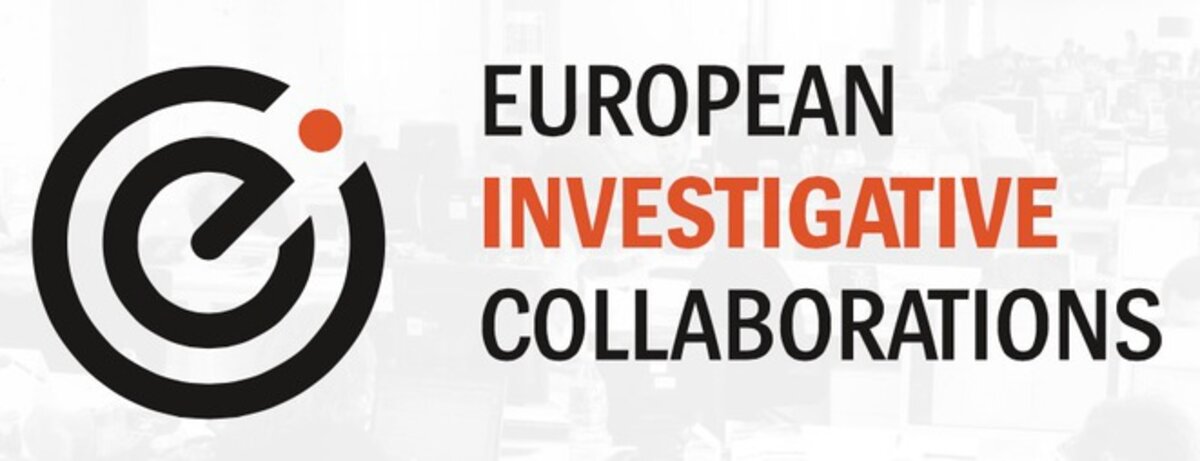
Enlargement : Illustration 1

Between 2000 and 2005, Enders was head of the German-based defence and security arm of EADS, the pan-European aerospace and defence giant that was re-named Airbus Group in January. As one of the three aerospace industry partners in the consortium which builds the Eurofighter (the others being Britain’s BAE Systems and Italy’s Alenia Aermacchi, now renamed Leonardo), the EADS – now Airbus – defence arm was actively involved in the sale to Austria of the fighter aircraft, one of the first contracts to be signed with a nation outside of those represented by the consortium.
The industrial partners which make the Eurofighter Typhoon are grouped together in a holding company, Eurofighter Jagdflugzeug GmbH, based in Hallbergmoos in Germany. The Airbus Defence and Space division owns 44% of the company (33% is held by its headquarters in Germany, and 13% by its sub-division in Spain), while BAE Systems owns 33% and Italy's Leonardo holds 21%.
The fraud and corruption allegations surrounding the deal with Austria revolve around a London-based company called Vector Aerospace LLP, which was finally wound down in July 2012. Vector Aerospace was controlled by the Airbus (then called EADS) defence arm based at Ottobrunn, close to Munich, which provided it with funds totalling 114 million euros. According to a summary by German prosecutors of their investigations, led in Munich, Vector Aerospace LLP was “a mere shell company” that served as a “slush fund” which pumped, via fake contracts, a total of 104 million euros into dozens of offshore companies based in tax havens including the British Virgin islands, Singapore, the Isle of Man, Hong Kong and Cyprus.
The prosecutors found that the money was used “for the most part for corruption purposes, in particular to influence decision-makers” in the negotiations for the Eurofighter deal with Austria.
The Austrian investigation into the alleged corruption is also examining whether the cost of the aircraft was deliberately inflated and whether Vienna was misled over what are called “offset deals” that are supposed to boost the local economy by involving Austrian companies in work connected to the contract. Austria's defence ministry claims it was overcharged by some 183 million euros.
The huge costs of the Eurofighter deal led Austria to renegotiate the number of Typhoons it would buy, and in 2007 the total order was reduced from 18 aircarft to 15. In July this year, the Austrian government announced it will replace all 15 Typhoons in 2020 with other aircraft, which it said would save money compared to the cost of maintaining the Eurofighter jets over their lifespan.
Meanwhile, the German investigation suspects that Vector Aerospace was also used to pay out secret commissions in negotiations for the sale of airbus civilian aircraft, which if proved true would mean that the Airbus defence arm close to Munich provided slush funds for the wider group. While the German probe has found no evidence directly implicating Enders, head of the defence arm for five years until 2005, Austrian prosecutors announced in April that the Airbus boss was among those suspected of personal involvement in the alleged fraud in the Eurofighter negotiations. Both Airbus and Enders immediately dismissed the claims, and Enders denounced an “abuse” of the Austrian judicial system for “political motives”, adding: “These allegations are unfounded and unsubstantiated.”
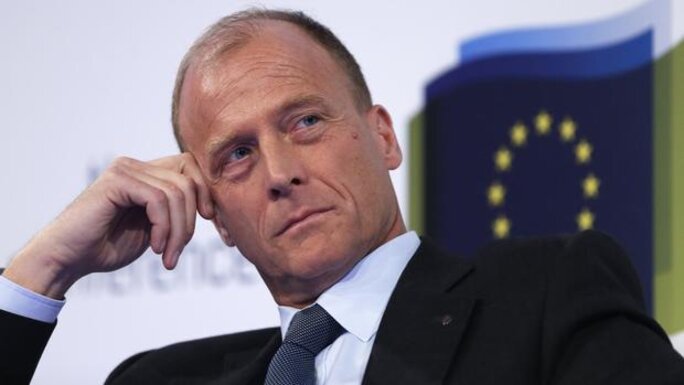
Enlargement : Illustration 2

After his appointment as CEO of the entire Airbus group, Enders launched a series of internal investigations into past business practices, ostensibly to put an end to legal and ethical irregularities. In March 2015 he named Briton John Harrison as Group General Counsel, covering the responsibilities of Corporate Secretary, General Counsel and leading the Ethics and Compliance programme, in charge of cleaning up past business practices. The two men already knew each other well. Harrison had served as general counsel at Airbus Defence and Space when Tom Enders was in charge of that division. Harrison was also familiar with the Eurofighter contract with Austria.
Among the revelations to emerge from documents obtained by Mediapart and German weekly news magazine Der Spiegel is evidence that Enders was personally involved in the creation of Vector Aerospace LLP, described by German investigators as a "slush fund", and also that Harrison subsequently instructed intermediaries used to obtain the 2003 Eurofighter deal not to testify before an Austrian parliament commission of inquiry into the affair in 2006.
In 2002, the defence arm of what was then EADS, and which was then run by Enders, called upon the services of the group’s Paris-based corporate marketing department EADS International (renamed SMO in 2007), to help in its bid for the Eurofighter sale to Austria. Within EADS International, and largely made up of French staff, was an “International Operations” (IO) branch, dedicated to helping the separate EADS divisions bidding for contracts of a sensitive nature. IO engaged the services of influential intermediaries, distributed what are often euphemistically called commissions, and was involved in the organisation of industrial offset agreements.
The IO unit, with a team of about 15 people, was eventually disbanded by Enders in 2016 after the emergence of allegations of corruption in Airbus commercial aircraft sales. Enders pointed to the entity as sole responsible for business malpractices within the group, notably that it paid hundreds of millions of euros in secret commissions to agents and middlemen for the sale of its passenger planes. In April 2016 Airbus reported to British export agencies the findings of what it called “misstatements and omissions” that emerged from an internal probe into its business practices, part of Harrison's 'clean-up' mission. The UK Export Finance agency subsequently froze export credits for Airbus, which are used for aircraft deliveries to airlines with restricted access to funding. Export financing agencies in France and Germany also suspended credit payments. The British and French investigations are ongoing.
Back in 2002, EADS International head Jean-Paul Gut turned down the request for help with the Eurofighter sale to Austria. This was because the Eurofighter programme was a direct commercial rival to the Rafale jet fighter built by France’s Dassault. The industrial stakes were such that French staff at EADS International, a marketing division of the European consortium, were barred from taking part in promoting sales of a jet in which France had no part.

Enlargement : Illustration 3
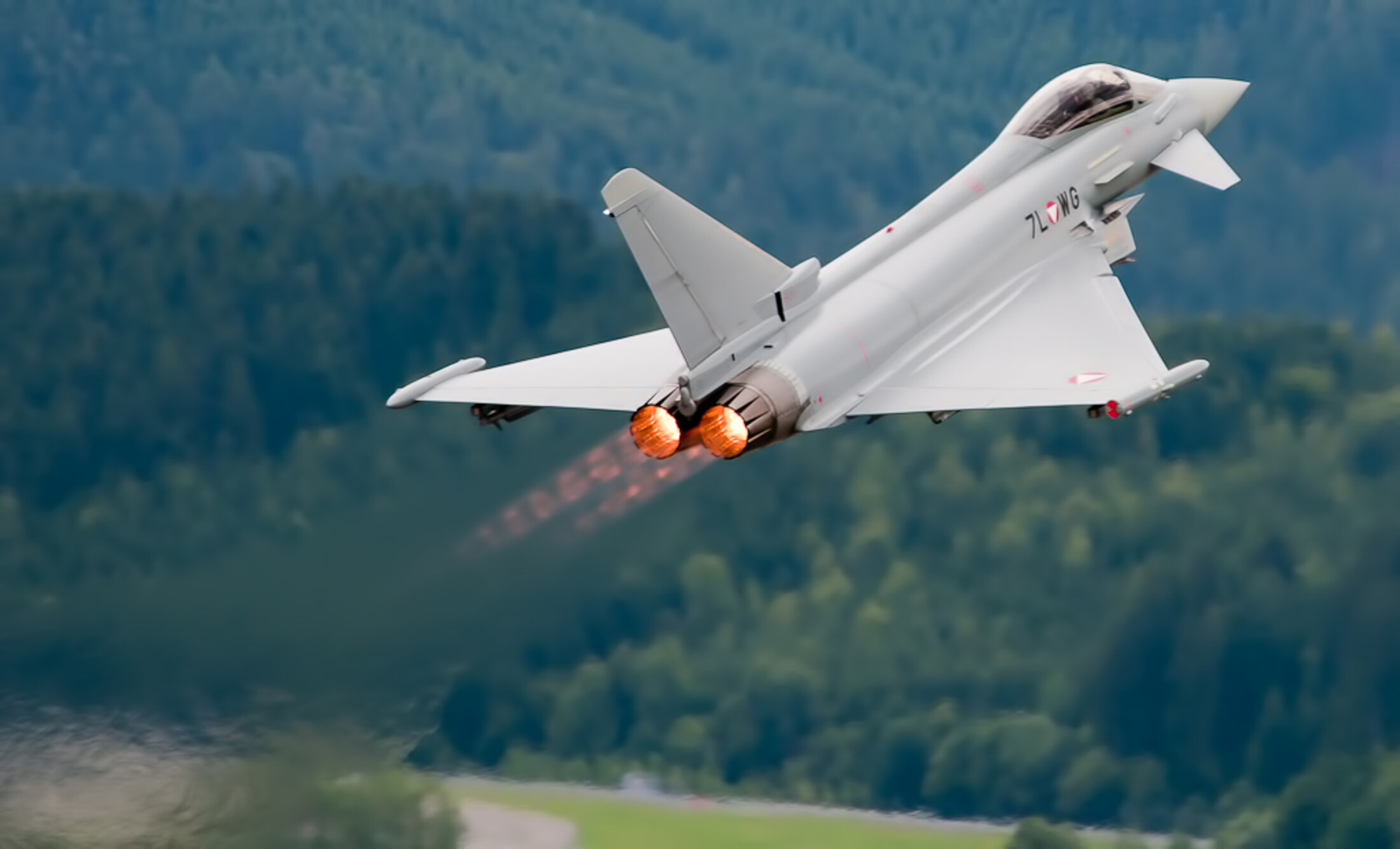
As a result, the EADS defence arm engaged the services of two German nationals who were part of EADS International, Manfred Wolff and Klaus-Dieter Bergner. The latter was moved to a post within the Eurofighter consortium, with the task of lobbying for sales of the fighter. Internal company documents seen by Mediapart show that Tom Enders personally approved Bergner’s appointment.
Bergner set up a base in Vienna, where he soon became closely acquainted with Major General Erich Wolf, then head of the Austrian air force. After it was revealed that an intermediary recruited by Bergner paid 87,600 euros to a company run by Wolf’s wife for the organisation of an air show that would never take place, Wolf was suspended from duty and later resigned.
At the time, the Austrian government was made up of a coalition between the conservative ÖVP party and the far-right FPÖ party led by the late Jörg Haider, which was in power between 2000 and 2005. In January 2002, Bergner paid for Haider and cadres of his party to spend a weekend in a hotel in Brussels and two days after the sojourn an internal EADS document marked up as “strictly confidential” listed the conditions laid down by Haider for his support for the Eurofighter deal; EADS was to transfer several million euros in separate payments to both a PR-communications firm with close links to the FPÖ and to the SK Rapid Wien football club (several management figures of the club were members of the FPÖ), and also to part-fund a project to develop a technology hub in Jörg Haider’s political fiefdom Carinthia, the southern Austrian state of which he was governor.
The Eurofighter contract was officially signed in 2003. Part of the deal included the pledge by the Eurofighter consortium to provide offset contracts to local firms worth a total of 4 billion euros to the Austrian economy, which was double the sales value of the aircraft themselves.
The Eurofighter consortium handed the defence arm of EADS based in Germany and run by Tom Enders the task of managing the offset deals, providing it with 183 million euros. A company, Euro Business Development (EBD), was created in Vienna dedicated to establishing the offset deals with Austrian suppliers, and which was run by EADS lobbyist Klaus-Dieter Bergner. But intriguingly, EADS also decided that EBD would be placed under the umbrella of another firm which was also officially tasked with organizing the offset deals.
It was at first intended that this second company would be created under the name Omesco and registered in Cyprus, but it was finally decided that Vector Aerospace LLP in London would take on the role. According to internal documents seen by Mediapart, the choice of the British capital was made for tax reasons and also for maintaining the confidentiality of "the names of the final beneficiaries of Vector".
Officially, Vector Aerospace LLP belonged to two shell companies run by Austrian intermediaries specialized in arms sales. But secret agreements in fact gave EADS full control of the London firm. Klaus-Dieter Bergner and his colleague Manfred Wolff, no longer with EADS International, were actively involved in the operations of the London company. If ever Vector Aerospace LLP became an embarrassment, it was unlikely to directly implicate the management of EADS.
An internal company document obtained by Mediapart details the structure of the relations between EADS and Vector Aerospace LLP, the company created in Vienna, and how the “partner” parties paid by the London company are separated by what it calls a “Chinese wall” (see below).

Enlargement : Illustration 4

Tom Enders, as head of the EADS defence arm, was both personally aware and approving of the initial plan to create Omesco in Cyprus to steer the offset deals. The British and Italian partners in the Eurofighter consortium, meanwhile, were against the idea. In the minutes of a May 2004 meeting by the consortium’s management, it is recorded that Enders supported the Omesco plan. When, finally, it was decided to create Vector Aerospace LLP, registered in London on July 14th 2004, Enders was also aware of the project.
As outlined above, the French employees of the Paris-based EADS marketing unit EADS International were prevented from helping with the commercialisation of the Eurofighter because it was a direct rival to France’s Dassault-built Rafale jet fighter (the Rafale programme was begun after France withdrew in the mid-1980s from the early pan-European development of a fighter aircraft that would become the Eurofighter Typhoon). But the head of EADS International, Jean-Paul Gut, did finally agree to help with setting up Vector Aerospace LLP. His staff became involved in approving the legal paperwork surrounding the company’s creation, although they had no involvement with the intermediaries it used nor the payments it made.
In an email dated November 19th 2004, Johann Heitzmann, the head of the Eurofighter programme within the EADS defence arm in Germany, referred to a request made by Enders to Jean-Paul Gut that one of his staff, Jean-Claude Cadudal, should manage Vector Aerospace LLP. Cadudal played a key role in setting up offshore company structures for EADS Internatonal’s “International Operations” (IO) branch, which Enders would later, as Airbus CEO, denounce as the department responsible for the corruption scandals now hanging over the group. Enders’ request for the services of Cadudal was relayed to the EADS group’s then joint chief executives, Germany’s Rainer Hertrich and France’s Philippe Camus.
In his email, Heitzmann explained that the request by Enders was turned down, and that as a result, Heitzmann “prepared with Tom [Enders] the necessary steps to establish our own clearing house". Vector Aerospace LLP thus became a structure for payments managed by EADS defence arm in Germany, independent of the commercial services in Paris.
Contacted by Mediapart, Tom Enders refused to comment on the events reported here. However, Airbus has previously set out its position that the money transiting through Vector Aerospace LLP was properly and solely intended to establish its offset deals negotiated with the Austrian authorities, and as such Enders had no reason to be concerned about its activities.
Internal inquiries that served to defend Airbus
In a note dated December 3rd 2004, Jean-Claude Cadudal from EADS International in Paris approved the creation of the Vector Aerospace LLP structure, underlining that this was no more than an opinion on the part of EADS International to the project "submitted by EADS Germany". He added that his department "was not involved in the Austrian campaign, and therefore has no visibility on the commercial aspects and the consultants", but he advised that Vector Aerospace LLP should identify the beneficiaries of its payments and ensure that “anti-corruption legislation” was respected.
In early 2005, Vector Aerospace LLP began receiving money transfers from the EADS German arm, which would amount in total to 114 million euros. The London-based firm subsequently paid out a total of 105 million euros to about 50 companies, of which 35 were offshore shell structures based in tax havens. While Vector Aerospace LLP was supposed to be ensuring the offset deals promised in the Eurofighter contract with Austria, the current investigations by German prosecutors found, according to their own case summary dated December 2016, that none of the companies carried out any service “that could justify the payments".

Enlargement : Illustration 5
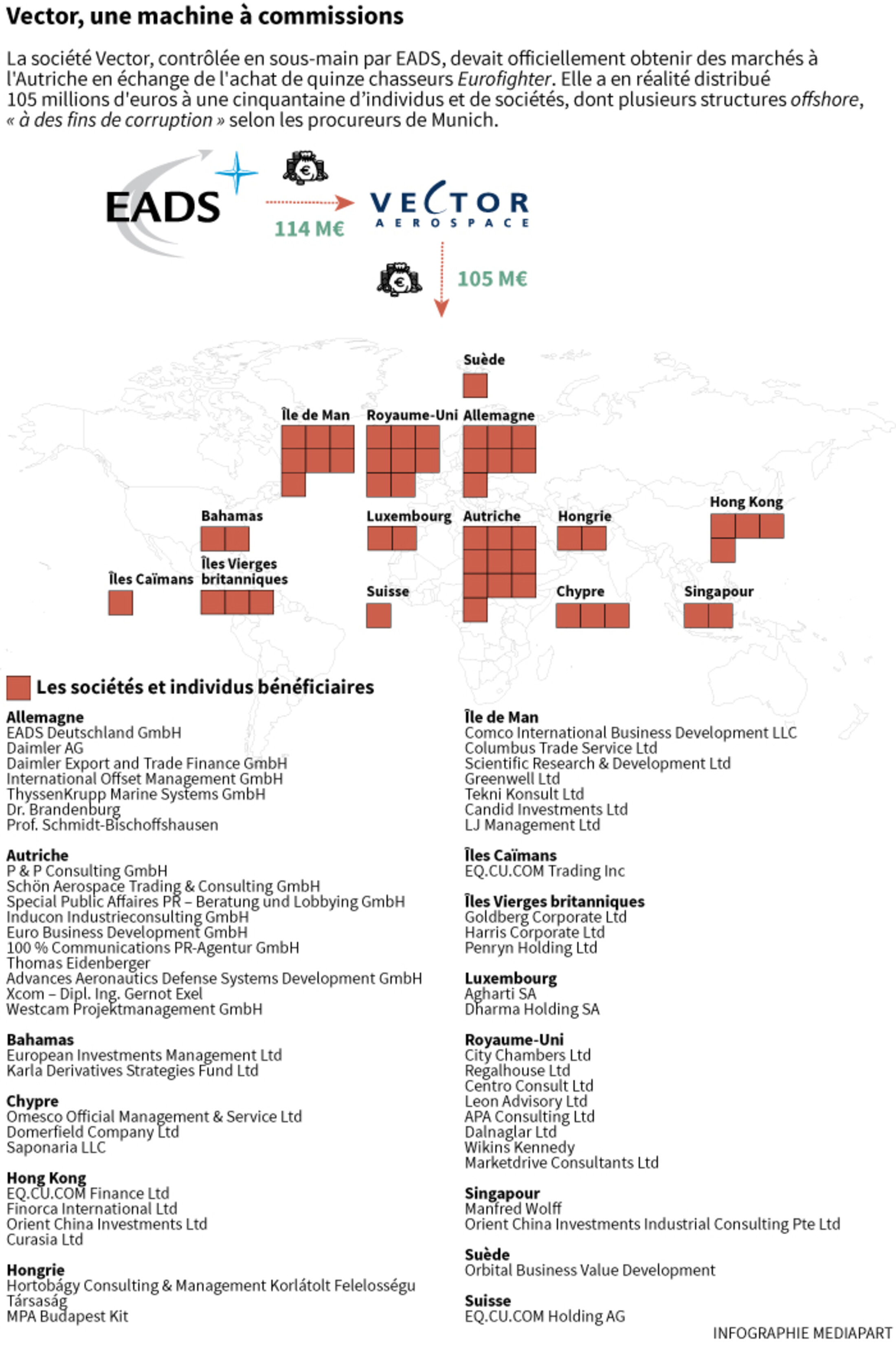
Because of the lack of cooperation from the authorities in tax havens and the secrecy surrounding the companies that received money from Vector Aerospace LLP, the German investigation was able to identify only a small number of the beneficiaries. However, those that they did identify were enough to convince them that behind the payments was a system of “corruption”. This included part payment of the funds promised to Austria's far-right FPÖ party leader Jörg Haider, with the transfer by Vector Aerospace LLP of 4 million euros for the development of a technical park in the southern Austrian state of Carinthia, where Haider was governor.
The German prosecutors found that Vector Aerospace LLP had also paid, in separate instalments, a total of 8 million euros into a London-based firm called City Chambers. In an an internal report of its activities obtained by the prosecutors, City Chambers listed a “trip to India” in the company of the president of Austria in February 2005 (Heinz Fischer was Austrian president between July 2004 and July 2016), and a “trip to China” in the company of then-Austrian chancellor Wolfgang Schüssel. The invoices were all signed in the name of the same person, but with different handwriting.
In November 2004, the EADS German arm became involved in a project to revive the site of the former Formula 1 racing circuit at Spielberg, in the south-east Austrian state of Styria. It had closed after hosting its last Austrian Grand Prix race in 2003, and Austrian energy drink manufacturer Red Bull had a plan to develop the site into an adventure park and a technological centre working with the aviation and carmaking industries. As part of its offset deals in the Eurofighter deal with Austria, the EADS German arm agreed to invest 20 million euros in the project, and Vector Aerospace LLP was tasked with overseeing the operation. In the end, the project was abandoned for environmental reasons.
Subsequently, Red Bull came up with a second development plan for the site, and which was backed by the Austrian chancellor. In an email dated April 2005, Tom Enders was advised by members of his staff to turn down what was called “the suggestion by Chancellor Schüssel”. Yet after meeting with Schüssel two weeks later, Enders announced that he had pledged that EADS would once again be willing to invest 20 million euros in the Red Bull scheme for Spielberg. But this second project, like the first, was eventually abandoned. Nevertheless, EADS German arm paid out 10 million euros to Vector Aerospace LLP for its role in studying the doomed investment plan.
The energy drinks giant finally restored the site in 2008, and what became named the Red Bull Ring has since returned to its original vocation of motorsport racing.
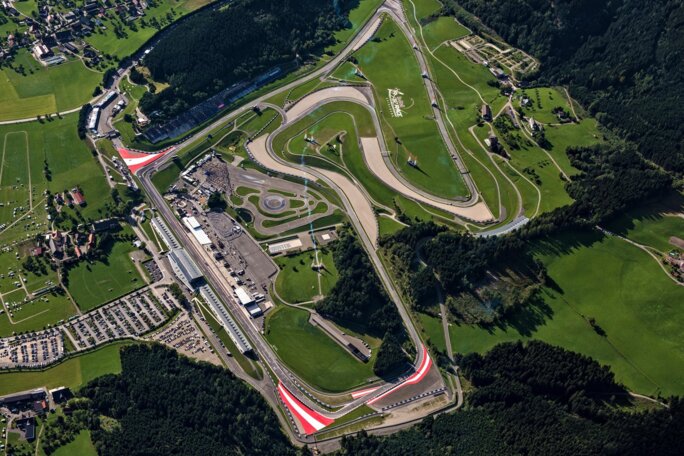
Enlargement : Illustration 6

Meanwhile, well beyond Austria, the Munich prosecutors’ investigation turned to Romania in a curious separate chapter of the activities of Vector Aerospace LLP. Romanian national Constantin Ster lives in the Romanian town of Bacău, situated in the foothills of the Carpathian Mountains in the east of the country. An accountant with a local secondary school, Ster does not appear to be a particularly wealthy man; he owns an apartment worth 30,000 euros, and he purchased his modest Dacia Duster SUV on credit. Yet his name appears as the owner of a Dubai-registered company that received 5 million euros from the structure steered by Vector Aerospace LLP.
Questioned by a Munich magistrate, he detailed how he had lived in the United Arab Emirates (UAE) between 1997 and 2009, where he worked at a school in Dubai. He said he became close with the Dubai monarchy after meeting with a nephew of the ruling sheik. Ster recounted that at the end of 2004, he met Manfred Wolff, one of the two German former staff at EADS International who were reassigned by EADS defence arm in Germany to work as a lobbyist for the 2003 Eurofighter sale to Austria.
He told the Munich prosecutor that Wolff was involved in lobbying the UAE authorities for the purchase of Airbus airliners, in competition with Boeing. Ster said he told Wolff that he could introduce him to a person who could seal such a deal, and that Wolff gave him 40,000 euros in cash for his services, promising to hand him the same amount for every Airbus subsequently sold to the Gulf state.
Manfred Wolff has given the German investigation a statement in which he denies ever having met Ster, and in which he also insists that he has never worked for the commercial aircraft division of Airbus.
However, Wolff did order a payment to be made to Ster by Vector Aerospace LLP after the Romanian sent the company an invoice for 5 million euros and dated March 31st 2005. In what can only reasonably be interpreted as a fake arrangement, his remuneration was officially for having convinced Airbus to sign a contract for purchases from an Austrian supplier as part of the industrial offset deals promised in the 2003 Eurofighter sale.
Vector Aerospace LLP made an initial payment to Ster of 2 million euros, but the sum was returned to the London company for reasons that Mediapart has not been been able to establish. Three months later, the total sum of 5 million euros was paid, via a shell company called Colombus registered in the Isle of Man, into the account of a Dubai-based company called ICT Business, whose owner was Constantin Ster.
Ster told the German prosecutors’ investigation that he had never received 5 million euros and had never heard of a company called Columbus. As for the company registered in his name in Dubai, Ster said he had at one point given Manfred Wolff a copy of his passport but not for the purpose of creating a company.
The German investigation also heard from a British frontman who worked as a tax advisor, and who was the official manager of the London-based company City Chambers which received 8 million euros from Vector Aerospace LLP and which invoiced the latter for trips with Austria’s former president and chancellor to, respectively, India and China. In his testimony, he told the prosecutors that he had registered the company on behalf of a client identified as an influential Austrian banker. He said that shortly after doing so, he travelled to Paris to sign a contract with EADS in the presence of Klaus-Dieter Bergner and Manfred Wolff, and that EADS then transferred 1 million euros to his Austrian client.
The Briton insisted that he had nothing to do with a number of invoices and payments issued by the City Chambers, adding that his name was misspelt on one of them and that another document in his name was written in poor English.
If what he and Constantin Ster told the German investigation is true, it would appear that the payment of secret commissions involved, at least in part, identity theft on the part of those operating the slush funds.
The 5-million-euro payment made to Dubai-based company ICT business was ordered just months after the creation of Vector Aerospace LLP. That raises the question of whether the funds prepared by the EADS defence arm for payments related to the 2003 Eurofighter deal with Austria were in fact intended from the beginning to also serve other branches of the EADS group, and whether Bergner and Wolff managed the funds in collaboration with their former colleagues at Paris-based EADS International.
The Munich investigators have not found the answer to those questions, but they suspect that the money transfers to offshore shell companies gave EADS, beyond the Eurofighter deal, a warchest for what they called “future corruption projects”. Further fuelling that suspicion is the background to another shell company called Comco, registered in the Isle of Man and which received 13 million euros from Vector Aerospace LLP. Comco was at first managed by a Swiss-based financier, before being transferred several years later into the ownership of a Mongolian national who runs companies registered in China and Singapore.
In 2006, following the first press revelations of the corruption allegations surrounding the Eurofighter deal with Austria, the Austrian parliament set up a commission of inquiry which invited EADS “consultants” involved in the bid to testify before it.

Enlargement : Illustration 7

On February 2nd 2007, John Harrison, then general counsel of the EADS defence arm, wrote an email in which he explained that EADS had contacted its intermediaries to advise that they should not take part in the Austrian parliament’s inquiry, citing a confidentiality clause in their contracts. Harrison, a Briton who since 2015 is general counsel for the entire Airbus group, argued that the parliamentary commission was not impartial. But he notably warned that submitting intermediaries to detailed questioning by the Austrian parliament could expose the aerospace group in the case of future legal action.
Harrison, along with his current role as general counsel and corporate secretary of Airbus, is responsible for its ethics and compliance programme, tasked by Tom Enders with a clean-up operation to eradicate the covert practices revealed by the various corruption scandals now dogging the group.
Enders left his post as head of EADS defence branch in Germany in 2005, when he was promoted to the post of co-chief executive of the whole of the EADS group, a position he occupied in early 2007 alongside his French counterpart Louis Gallois. In face of the extent of the controversy surrounding the Eurofighter contract with Austria, he ordered an internal inquiry which identified a number of anomalies surrounding the deal. He immediately commissioned a second investigation by London-based law firm Lovells (which later merged with US law firm Hogan & Hartson to become Hogan Lovells).
The report of that investigation was completed in May 2007, made up of just 19 pages. EADS gave little information to Lovells and advised the law firm that a number of witnesses it had requested to interview were not pertinent to its inquiries. In sum, Lovells simply confirmed that payments made surrounding the Eurofighter deal did indeed correspond with invoices.
Questioned by the Munich prosecutors, an auditor with the aerospace group said that only the accuracy of financial accounts was scrutinised by the London law firm which “did not check whether or not the agreed services had actually been rendered", adding: "Within the scope of its assignment, Lovells has found no evidence of any criminal and unlawful conduct".
But the allegations of corruption subsequently built up steam, resulting in the opening of the German investigation in 2012 and the subsequent police searches in November that year of the offices of EADS defence arm close to Munich and two other sites in Germany. Thomas Enders, who months earlier had been made sole CEO of the EADS group, commissioned a new investigation, this time by London-based international law firm Clifford Chance (where John Harrison had begun his career in 1991). Unlike Lovells, Clifford Chance was given access by EADS to a vast amount of information and was able to interview most of those involved in the Austrian deal. In December 2013, the law firm delivered its report of more than 1,000 pages, and which EADS subsequently announced "has not revealed any evidence of corruption."
Importantly, in the report’s introduction it was made clear that Clifford Chance was commissioned to establish only the facts of the affair but was not asked to provide a legal analysis of those facts it discovered. Furthermore, the catalogue of questionable practices that emerged among those facts was a lengthy one, including payments made to the Austrian far-right party, money that was funneled into shell companies in tax havens, and payments to consultants whose work left no trace.
But Clifford Chance, in accordance with their brief from EADS, refrained from analysing such events from a legal perspective. In the case of the payment of more than 87,000 euros made to the wife of the then chief of the Austrian air force, Major General Erich Wolf, the legal firm observed that it could not know if that could have influenced her husband’s opinion of the Eurofighter contract.
Clifford Chance had access to all information concerning Vector Aerospace LLP and also the complete list of companies which received payments from it. But EADS did not ask its consultants in the Austrian deal to provide the inquiry with details of their bank transactions, nor the identity of the true beneficiaries of the offshore shell companies involved in the scheme. Most of the managers fronting the shell companies refused to be interviewed by the law firm. The result was that Clifford Chance was unable to see beyond the “Chinese wall” of the payments structure which hid the final destination of most of the handouts. Yet still today, what is now the Airbus group refers back to the Clifford Chance report as evidence that there was no corruption or any other irregularity in its deal-making.
While the group refused to answer questions put to it by Mediapart, Airbus did send a statement (in German) by email to our EIC partner in this investigation, Der Spiegel. “Neither the judicial investigations in Munich and Vienna, nor our in-depth investigation led by Clifford Chance, have established the existence of corruption,” it read. “[...] the fact that these allegations are publicly reiterated brings enormous and unacceptable damage to the reputation of Airbus, against which the group reserves all its legal means.”
-------------------------
- The French version of this report can be found here.


